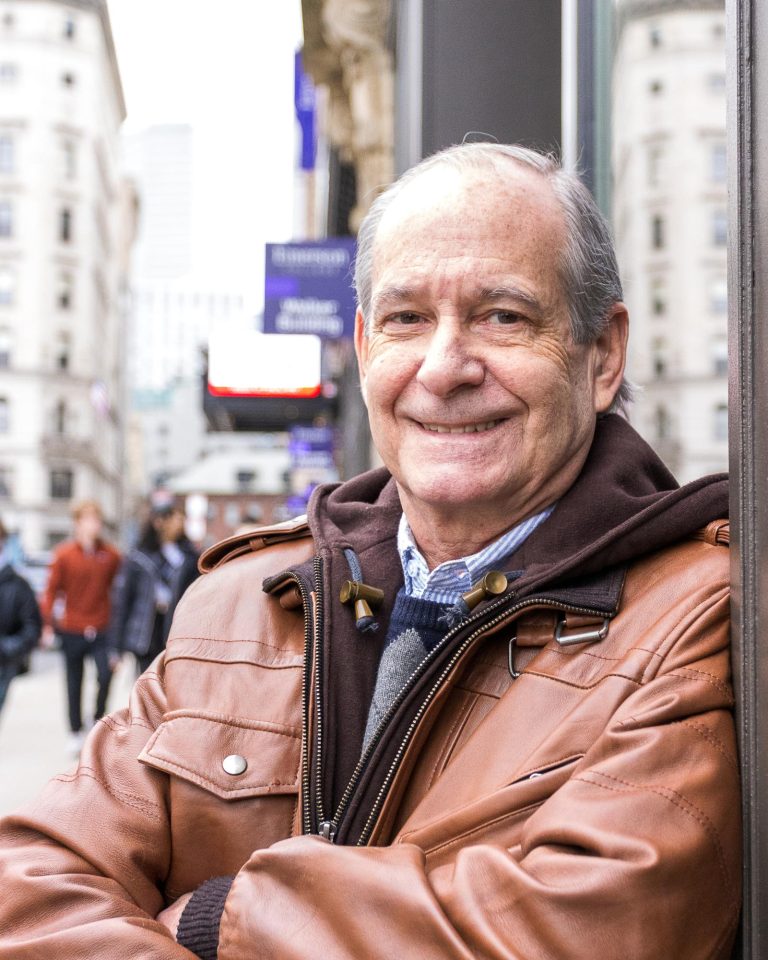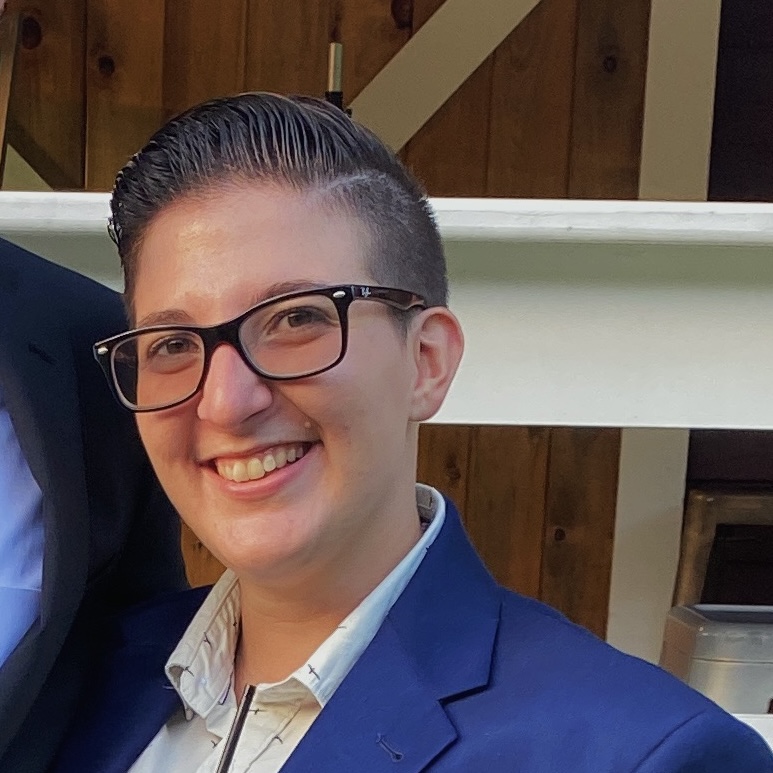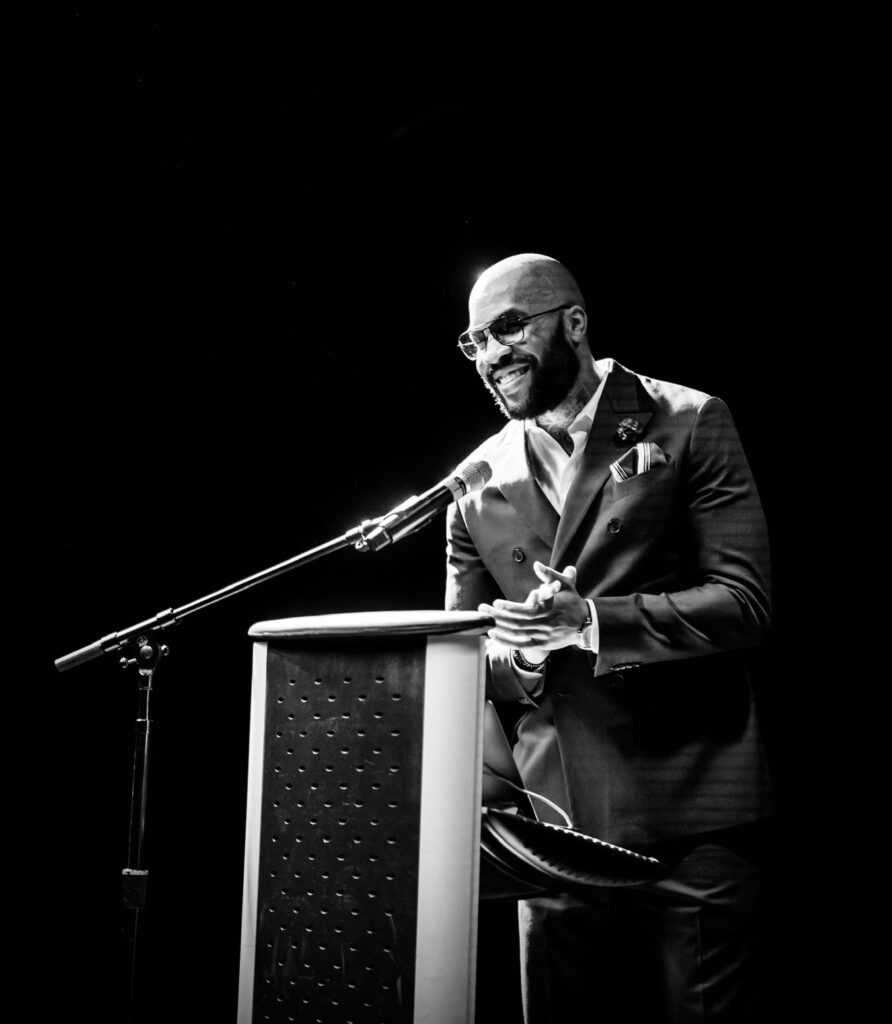Innovative, Inspirational, Illuminating: Three Educators Honored with Teaching Awards
The three recipients for this year’s Teaching Awards foster innovation, encourage students to reach for their dreams, and literally light up the stage.
“We received over 250 nominations this year, which shows the degree to which excellence in teaching is recognized and appreciated,” wrote Interim Provost Jan Roberts-Breslin in an email announcing the winners.
Performing Arts Professor Scott Pinkney has designed the lighting for more than 450 productions in a career spanning a half-century, and will be honored with the Helaine and Stanley Miller Award for Outstanding Teaching.
Marlboro Institute affiliated faculty member Ellie Beargeon served in the U.S. Army for six years before switching into a career in higher education, and is receiving the Alan L. Stanzler Award for Excellence in Teaching
Senior Executive-in-Residence in Marketing Communication Jae Williams ’08, MA ’16, recipient of the Alumni Award for Teaching Innovation, has forged a pilot program with HartBeat Productions.
Winners were selected in a process that included the Deans’ Council, in consultation with the Gold Key Honor Society officers, the donors of the awards, and/or the Leadership Committee of the Alumni Board. They will receive their awards at the Gold Key Society Induction Ceremony on Wednesday, April 3.
Emerson Today asked the winners about their teaching philosophy:
Scott Pinkney
Q: You were praised for being a “tireless student advocate… and one who makes us feel supported in taking risks and following our dreams while steadying us and helping us on the right track to realize them.” How do you support students in taking risks?
Pinkney: Lighting design is all about taking risks. Since your work only exists in three dimensions and real time, pushing yourself to use colors and/or angles that you aren’t familiar with or comfortable with is an imperative for a young designer. I encourage my students to push themselves with choices that are outside their comfort zone, with the knowledge that mistakes are expected and that as much learning can come from making mistakes in a safe environment with a support system (me) there for you, as can come from getting things right the first time!

Q: You’ve created the lighting for more than 450 productions in a career spanning more than 45 years! Can you name one or a few of your favorite shows to light and why?
Pinkney: Actually, it’s more than 50 years now. There are many shows that are special for me. The most famous is Harvey Fierstein’s Torch Song Trilogy on Broadway. It was the first commercially successful gay play and won two Tony Awards. It proved that a love story about two men could appeal to a much larger audience than was ever expected and broke new ground in the theatre.
Other plays are MALA, by Melinda Lopez, which tells the story of trying to deal with an angry, dying parent and was very personal to me, since I had recently gone through a similar experience with my own mother, and Mark St. Germain’s The Best of Enemies, based on a true story of a civil rights activist and the local leader of the Klu Klux Klan in Durham, North Carolina. All of these were original productions of new plays, which I especially enjoy and have done a lot of in my career.
Q: What does it mean to you to receive the Helaine and Stanley Miller Award for Outstanding Teaching?
Pinkney: It means a huge amount to me! I’m so honored to be receiving this award. Teaching is the soul of my experience at Emerson and my students are my family. Passing my knowledge along and having 20 years of students trust me with four years of their learning life is the height of what teaching is to me. To be recognized for it is very special!
Q: Is there anything else you’d like to share about winning the award, your work, teaching at Emerson, et cetera?
Pinkney: There is a tradition in the theatre that knowledge is passed on from one mouth to one ear. I have, throughout my career, tried to honor that tradition and pay forward the gifts of all of the generous people who shared their knowledge with me. Now, my former students are passing their knowledge along to the next generation. This makes me very happy, grateful and proud. My students, past and present, are my legacy!
Ellie Beargeon
Q: You were nominated for being able to connect “the course works to the lives of both herself and every person in the classroom.” How do you connect course work to your life and your students’ lives? Can you provide an example?

Beargeon: I teach an American Pop Culture course and a War and Military Studies course — both engage heavily with the idea of identity formation, development, and the influence of external society on our own conceptions of ourselves and the subcultures we inhabit.
For example, I will share with students my own identity — as someone who was a non-traditional, first-gen student from a working-class background when I was in their shoes, as an example of the different types of “social and cultural” capital one gains (or doesn’t). Or in the military class, I connect that to a case study of global military recruitment strategies and ads that speak directly to those hoping to “reform” their identity through a chance at upward mobility, belonging, etc.
Q: What does it mean to you to receive the Alan L. Stanzler Award for Excellence in Teaching?
Beargeon: I am very grateful to receive the award. The classes I teach sometimes involve difficult or complex topics, and it is truly heartwarming to me that students feel safe and able to discuss their ideas openly in my classroom and feel connected to their peers and studies. Especially in light of recent domestic and global events! It can feel in today’s world that polarization is insurmountable, I’m so glad I can facilitate a space to have respectful discourse!
Q: You’re an Iraq War veteran, and served in the U.S. Army. What was your rank? And how does that experience help you be an excellent educator?
Beargeon: My highest rank in the Army was Corporal. I joined the military out of necessity, and attended school during the last few years of my enlistment and finished afterwards. Having those experiences so young (I turned 21 in Iraq!) really informed what I wanted to study: Studying sociology and political science really helped me “make sense” of what I’d seen and experienced during those six years.
I worked full-time while also going to school full-time, and it was a lot of culture shock at once. Many of my preconceived notions were challenged and changed drastically as I learned more…At first, I felt like I’d lived on a different planet than most of my peers, but that faded and in an odd way, the more knowledge I gained, the more able I felt to properly reconcile with my ‘past life’. I think that really helps me meet students where they are at — because I very much understand what it was like to be in a classroom and feel initially defensive, or reckon with imposter syndrome, or balance responsibilities outside of school and the like.
Q: Is there anything else you’d like to share about winning the award, your work, teaching at Emerson, et cetera?
Beargeon: I predominantly teach within the Connecticut community college system, specifically in the rural northeastern corner where I live and commute from. I’m able to personally relate to many of these students, and when I began to teach at Emerson and Quinnipiac University, I worried that I wouldn’t be able to connect so well. Winning the award has really “affirmed” me, or comforted those earlier fears from years ago — that I am upholding my responsibility and duty to the students to provide a rigorous but accessible opportunity to study the culture and society they live in as well as, in the case of the war studies class, some of the most dire issues facing it.
Jae Williams
Q: Can you please provide an example of how you implement innovation in your teaching?
Williams: In honor of the 50 years of hip hop, I asked students in my Hip Hop Culture & Economy course to create their own hip hop culture-inspired magazine called the Global Groove (see below) that highlights the history of hip hop and how the culture has influenced their life. We printed copies of the magazine for each student and they each signed all the magazines so that each piece was a ‘one of one’ and could serve as a time capsule/memory of their time at Emerson and in the course.

Q: What does it mean to you to receive the Alumni Award for Teaching Innovation?
Williams: It’s special. To have once been an Emerson student in the back of my classes too shy to raise their hand to participate, to now be in front of Emerson students as their professor is a testament to my evolution and growth. I truly love what I do and it shows up when I teach, and I think this award isn’t a reflection of “how good I am at teaching” but more so how passionate I am doing something I love.

Q: Students said you value setting your students “up for success, not in a specific industry or field, but as professional human beings navigating the world.” When you read that — how does it make you feel? How do you accomplish this?
Williams: It’s affirming that I am on the right path in my teaching approach. I work to invest in the students as people first and content second. The facts, figures, and theories of the course content is important, but it comes secondary to helping our students find themselves, build self-confidence, and understand how their uniqueness can be an asset to professional aspirations. I connect life lessons to the course content with books like The Alchemist by Paulo Coelho in my Senior Residency course so that students can begin to appreciate the journey in finding their life purpose versus solely focusing on the goal of a destination like graduating or landing their “dream job.”
Q: Is there anything else you’d like to share about yourself, the award, your work at Emerson, et cetera?
Williams: I encourage my colleagues to continue to find ways to “teach outside the box” and not forget our students are people first and if we are to truly be effective in the classroom, we must connect with those people…OUR people. Our students don’t care what we know until they know that we care. Many of us at Emerson care deeply about our students but sometimes we get so caught up in the day-to-day and getting through our syllabi that we need reminders of why we are in the classroom in the first place.
Categories